First of a two-part series
MANCHESTER, N.H. – From the day he first stepped into the hospital, Dr. Yvon Baribeau had the makings of a star.
In the operating rooms at Catholic Medical Center, where he started working three decades ago, he was a forceful presence — tall, self-assured, ambitious, tireless, a cardiac specialist who relished the toughest cases and was gifted, peers noted, with “natural” hands that moved swiftly and smoothly through long hours of surgery.
A celebrated surgeon,
a trail of secrets and death
Part one
Colleagues tried to stop a surgeon who would set a record for malpractice settlements. Hospital executives let him go on and on.
Part two
A crisis of conscience, with lives on the line
Chronology: What the public didn’t know about Dr. Yvon Baribeau
Secrecy pervades medical malpractice settlements
He was also the kind of bold new player who might help a community hospital become something more. CMC executives soon marketed him to the public as an innovative, accomplished cardiac surgeon.
His face appeared in advertisements and news articles promoting the 330-bed hospital and its flagship heart institute. In one newspaper ad, a smiling Baribeau in surgical scrubs is as a pioneer in minimally invasive heart surgery.
“Benefit from the experience,” it reads.
Baribeau, born and trained in Canada, became one of the hospital’s busiest and best-paid surgeons, ultimately earning more than $1 million a year. The hospital sometimes received more than $200,000 from a single Baribeau case and built one of the biggest heart centers in New England north of Boston.
Even after Baribeau abruptly retired at age 63 in 2019, hospital officials continued to describe him only in glowing terms.
“Dr. Baribeau was absolutely among those folks that were revered,” Alex Walker, the CEO of the hospital, said in a recent interview.
But a Boston Globe Spotlight Team investigation has found that the reality could not have been further from the carefully crafted public image — and that the executives who treated him as a star, and promoted him to the public, knew the truth and its consequences.
The facts are blunt and chilling: Baribeau has one of the worst surgical malpractice records among all physicians in the United States.
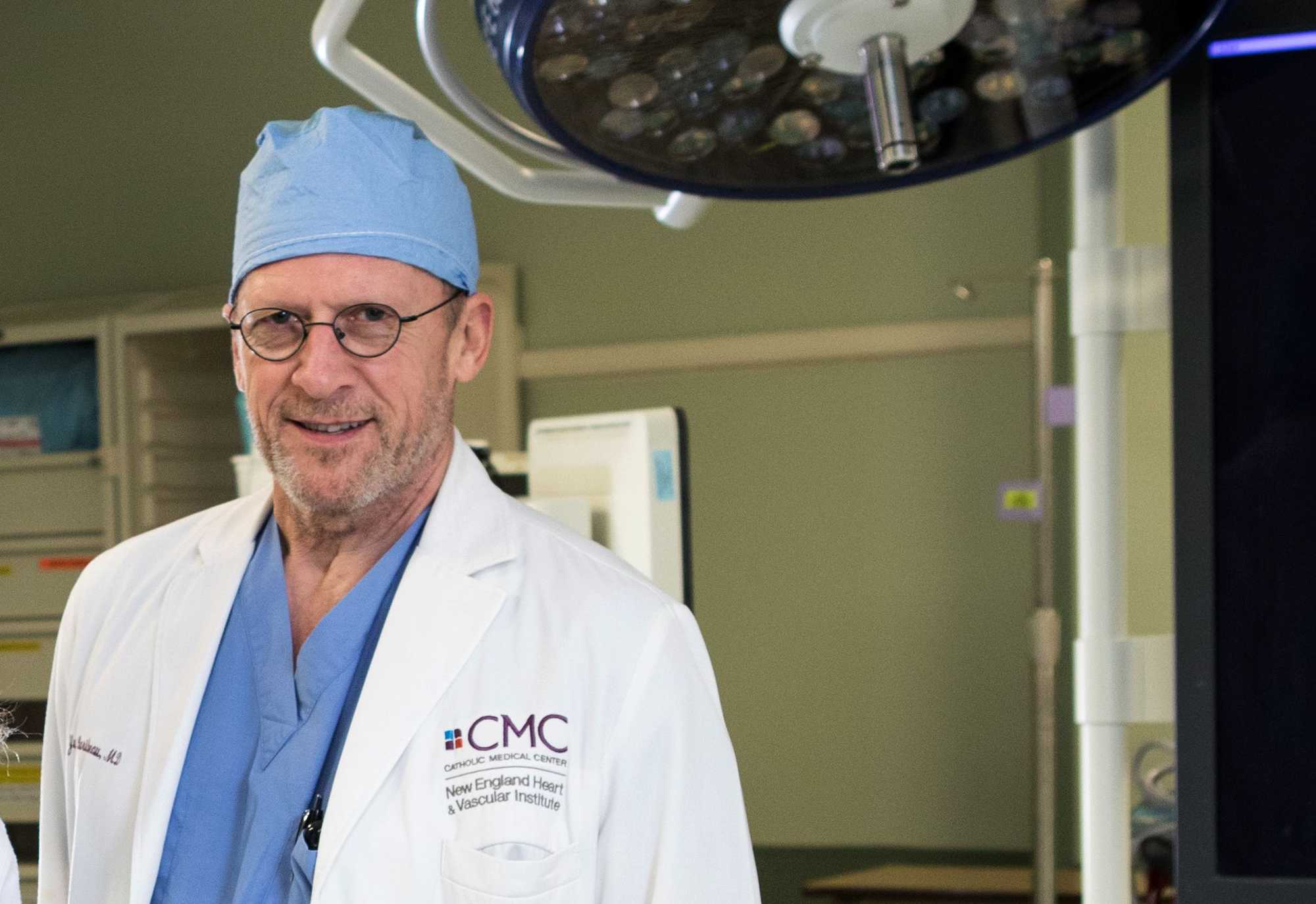
He has settled 21 medical malpractice claims tied to his work at CMC, including 14 in which he is accused of contributing to a patient’s death. There is no US physician with more settlements involving surgical deaths in the last two decades, and no physician in New Hampshire with more settlements of any kind, than Baribeau, according to an analysis of a national physicians’ database that goes back to 1990.
Even cardiac surgeons at Boston’s academic medical centers, which take on many of the most challenging cases, come nowhere near Baribeau’s statistics. A Globe analysis of 125 current, retired, and other non-practicing cardiac surgeons affiliated with the city’s top teaching hospitals found that only 12 had malpractice settlements, and of those 12, none had more than two, state records show. Ten of those 12 doctors had just one settlement to this point in their careers.
A national study in 2016 painted a similar picture, finding that heart surgeons and other surgical specialists typically face only one or two malpractice claims in their careers.
Baribeau’s 21 settlements do not capture the grievances of all the families of patients treated by him. About a half-dozen other patients or their families have criticized his medical care, including two who filed lawsuits but later dropped them.
Meanwhile, for years, the public had virtually no way to know of his troubled history. To this day, the website of the New Hampshire medical board, which licenses physicians in the state, shows Baribeau with a spotless record.
Hospital executives were well aware for years how dangerous he had become. They knew because they had been repeatedly warned by surgeons and other medical professionals at Catholic Medical Center that Baribeau’s errors were harming, even killing, patients. It was an extraordinary staff uprising in a field that puts a premium on professional deference and chain of command. One former CMC cardiologist even filed a federal detailing the disastrous outcomes of a dozen of Baribeau’s cases.
And yet for years hospital management resisted reining in one of their leading rainmakers.
This case out of a little-known community hospital in New England reveals painful truths that apply far beyond its halls and operating rooms and point to some common realities in today’s health care world: Medical consumers — patients in need — are often kept in the dark about the performance history of their physicians, even when that history is grim. And hospital officials can in some cases evade accountability for years, even when confronted repeatedly by alarmed medical staff, as happened in this case. It is one hard edge of a helping profession.
Baribeau’s alleged malpractice in this Manchester hospital ran the gamut from surgical mistakes so basic they surprised other doctors to not showing up when some patients were in crisis. And every time, according to physicians’ accounts, a human life hung in the balance:
A retired Army officer, for instance, died after alleged surgical errors by Baribeau caused so much blood loss that she needed transfusions equal to nearly five times her blood volume.
A construction contractor passed away after Baribeau, while on call that night, did not come to the hospital for hours despite repeated phone requests to deal with this life-threatening situation.
And a garage owner whose sternum Baribeau allegedly sawed off-center at the start of an open-heart procedure suffered severe complications and spent months in the ICU.
Baribeau has also been accused of keeping some patients with little or no hope for recovery on life support for at least 30 days after surgery — perhaps, it is suspected, to improve his surgical metrics and avoid having the death blamed on his work.
Baribeau kept alive one patient even though his chest cavity had turned “black and necrotic,” said a doctor who witnessed this.
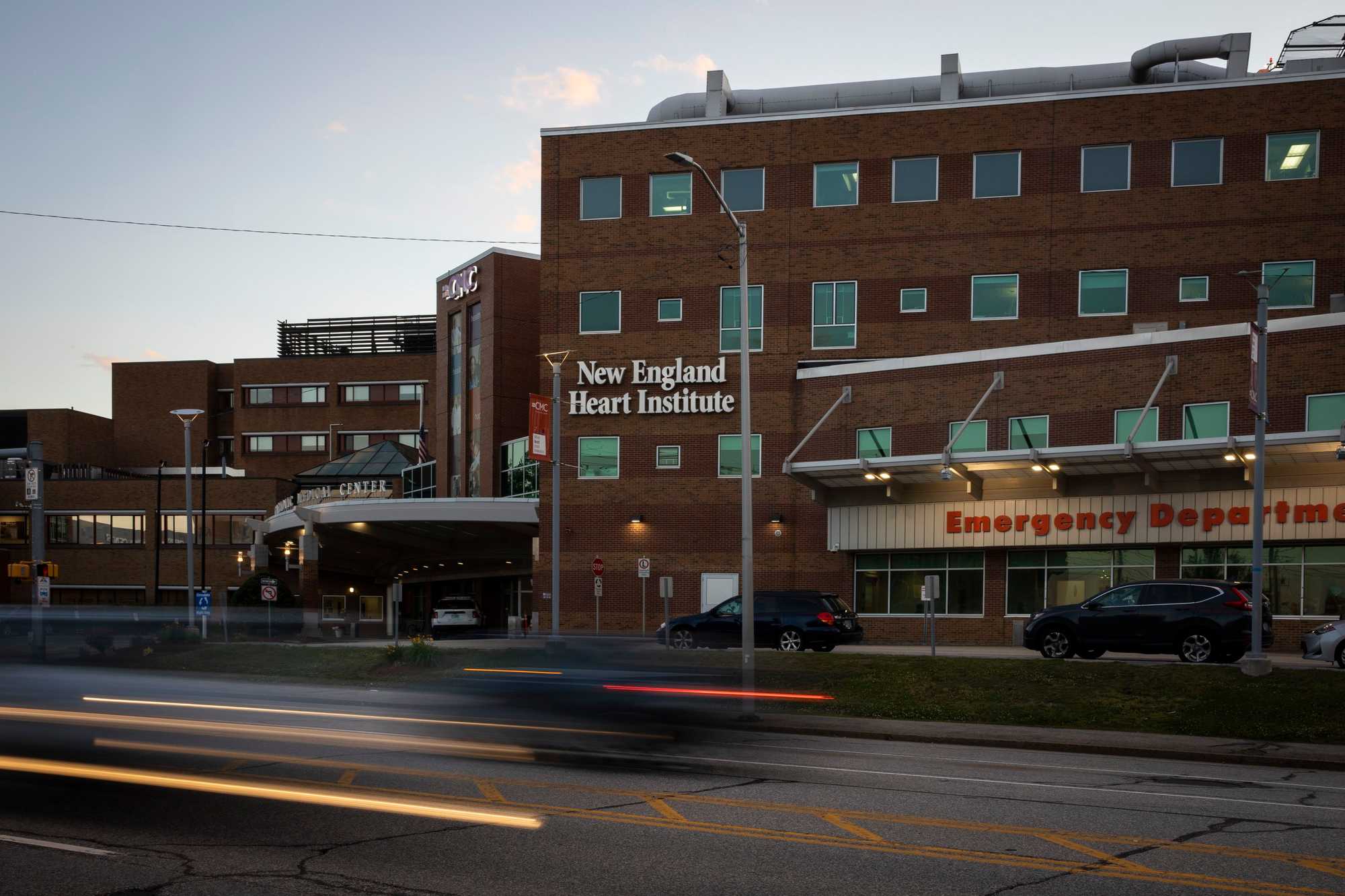
The leadership of Catholic Medical Center was well aware of problems with Baribeau at least by 1997, just five years into his tenure, when he was sued for allegedly cutting a critical vein to a patient’s heart by accident and concealing the mistake, eventually leading to the man’s death. But Catholic Medical Center continued to support him. The big newspaper promotional campaign that featured Baribeau, which ran in The Boston Globe and other publications, came after this disastrous case.
And in the years that followed, administrators, some of whom still play powerful roles at the hospital, sometimes sought to deflect blame away from their star surgeon and to discipline or demote his critics, among them some top players on the medical staff.
It wasn’t until after a remarkable, episodic campaign of resistance, led over years by doctors and nurses who worked closely with Baribeau and had grown increasingly alarmed by his pattern of serious errors, that he was forced out of cardiac surgery. But before this happened, Catholic Medical Center endured what became known as “the summer of death,” when Baribeau performed five surgeries in just five weeks that led to patient injuries and deaths — and malpractice settlements.
“We tried extremely hard to stop that surgeon from operating, and we were fought at every turn by that administration,” said Dr. Weldon Sanford, the current chief of pathology at CMC and one of more than 40 current and former staff who spoke to the Globe, many fearing retaliation for their statements.
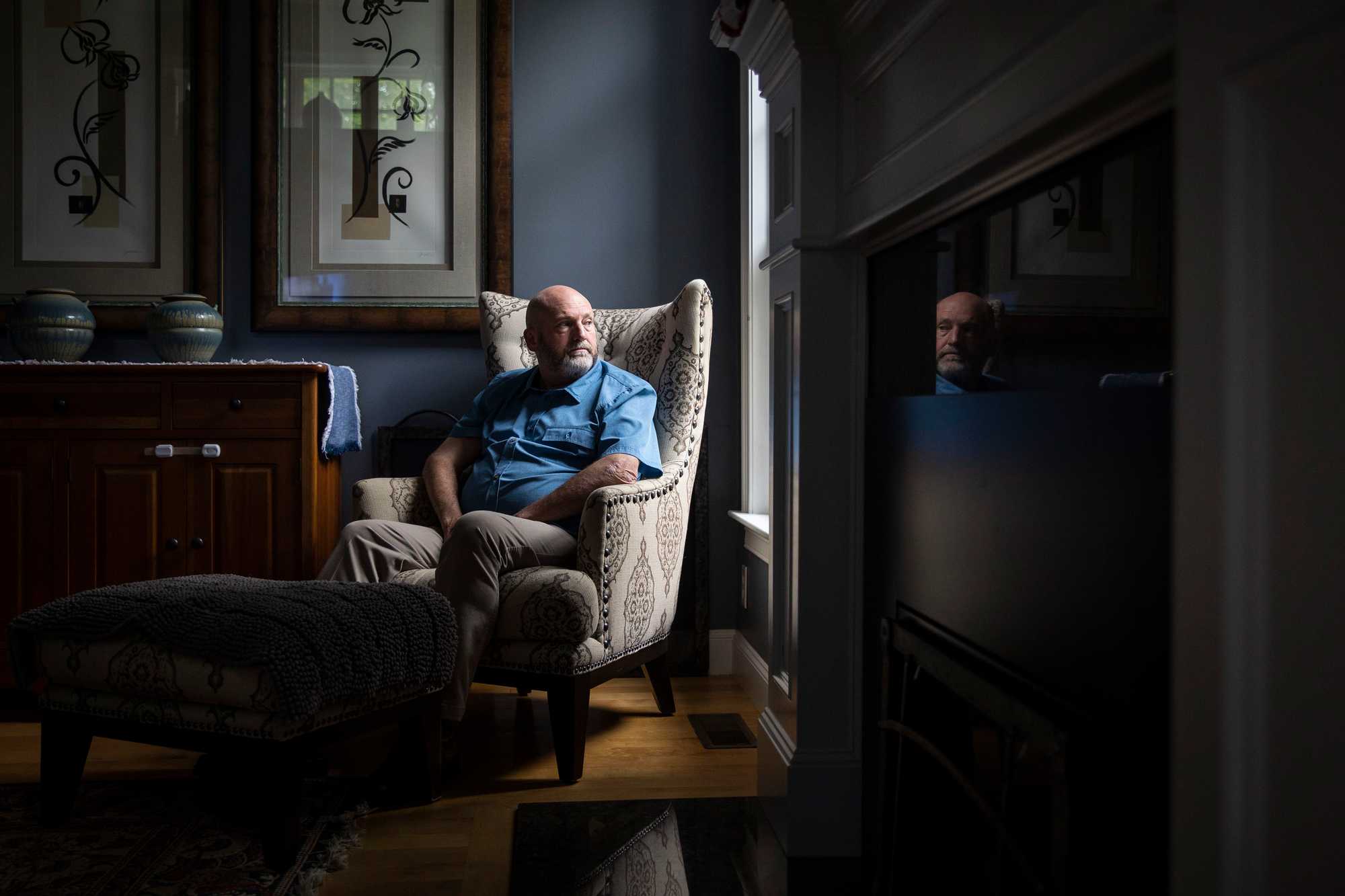
Baribeau declined to be interviewed by the Globe, referring all questions to his lawyer, Beth Catenza.
In a statement provided via Catenza, Baribeau said, “I performed over 10,000 procedures at CMC, always with patient safety as my first priority.”
His lawyer and hospital officials declined to answer many questions about his tenure and settlements, citing confidentiality related to medical records, personnel matters, or contractual constraints.
The hospital was also a target of legal action by families with complaints about Baribeau, including allegations that CMC officials ignored Baribeau’s problems and put profits ahead of patient safety, records show.
Both CMC officials and Baribeau’s lawyer said that malpractice settlements do not constitute an admission of wrongdoing.
Dr. Weldon Sanford
Current chief of pathology at CMC
Baribeau, in the statement relayed by his lawyer, said that he had agreed to settle a group of 17 claims made against him in 2020, covering surgeries over six years, “to avoid lengthy and protracted litigation in my retirement.”
In an interview in a CMC conference room in May with top hospital staff, Walker, the hospital CEO, said that Baribeau was treated like every other doctor and that the hospital has a rigorous quality-review process. He and Baribeau’s lawyer suggested the internal staff criticism of Baribeau was motivated by personal grudges or competitive jealousies, but they declined to be more specific.
He and Dr. Louis Fink, executive medical director of the hospital’s New England Heart & Vascular Institute, also pointed to data from two surgical quality organizations that show its heart center, as a whole, has an average or better than average record, depending on the specific safety issue measured.
How much better would that record have been if Baribeau’s tenure had ended earlier? It is hard to know. Hospital officials said that Baribeau’s safety and quality record was “not statistically different” from his peers, but declined to provide the Globe with mortality and complication rates for individual surgeons, including Baribeau, saying that data is confidential.
“We have built a culture of safety and compliance and quality in this organization for a very, very long time,” Walker said in the meeting with the Globe, where two other CMC cardiac surgeons also spoke in Baribeau’s defense.
In an e-mail to the Globe in May, John Cronin, the then-chair of the hospital’s board of trustees, defended its handling of issues related to Baribeau and said suggestions that CMC put profits ahead of patient safety are “false, baseless, and offensive.”
At this point, the full harm from Baribeau’s quarter-century in Manchester can’t even be tallied. Secrecy surrounds much of what happened, as grieving families who reached settlements out of court were required to sign nondisclosure agreements as a condition of receiving payouts. Among those reached by the Globe, many said they wished they could speak about the pain of their experiences but could not. The Globe chose not to identify these patients to avoid jeopardizing their families’ settlements.
But it’s already the largest cluster of malpractice settlements from surgery-related deaths involving a single physician in recent US history.
Many current and former CMC medical staffers say that the reckoning over this traumatic chapter of the hospital’s life is incomplete: Some of Baribeau’s supporters still run this Catholic nonprofit hospital, and his critics believe these leaders have not been held accountable for putting revenue ahead of patient safety.
“He’s not the most culpable here, it’s the administration that let him do it and protected him,” said Sanford, the pathology chief. “If you have a lion loose in a zoo, is it the lion’s fault? The lion is going to do what a lion does.”
Early signs of trouble
Warren Garland was a retired 68-year-old insurance businessman with a chronic cough. The World War II veteran had smoked at least a pack of cigarettes a day for over 50 years before quitting, family members said.
Warren Garland
Thoracic surgery patient
So when an X-ray and a CT scan had revealed a possible cancerous mass in Garland’s lower left lung in 1994, he went to CMC, a convenient 20-minute drive from his house in Derry.
That’s where Garland met Yvon Baribeau, a young Canadian surgeon who had joined the staff two years before. Baribeau was already known for his quick hands wielding a scalpel or suturing tissue. He was so fast, colleagues recalled, that he would earn the nickname “The Montreal Express.”
But Baribeau’s precision with the scalpel would soon be called into serious question.
On Aug. 3, 1994, Baribeau removed the lower lobe of Garland’s left lung. He later said in a deposition that he performed the operation, called a lobectomy, primarily to diagnose whether Garland had cancer. A less invasive needle biopsy wouldn’t have been appropriate, he contended, because he might have missed the cancerous cells when he removed a tissue sample.
After the operation, Garland’s family got good news: He didn’t have cancer. The apparent mass on the diagnostic images had merely indicated a form of pneumonia.
But Garland felt much worse after the surgery, not better, said his two children, Michael Garland and Suzanne Tiscione. He was short of breath and lethargic. He left the hospital tethered to a portable oxygen tank, which became his constant companion.
After struggling to breathe for months, he went some 50 miles south to Massachusetts General Hospital in Boston, where Dr. John Wain, a thoracic surgeon, removed the rest of his failing left lung in September 1995, according to court filings.
Wain told the family he had made a startling discovery during the surgery: sutures on the left superior pulmonary vein, which carries oxygenated blood back from the left lung to the heart.
Baribeau had evidently cut the critical blood vessel by mistake and never informed the Garlands or mentioned it in his operative note. The sutures, Wain told the family, had clogged the vein, preventing Garland from getting enough oxygen.
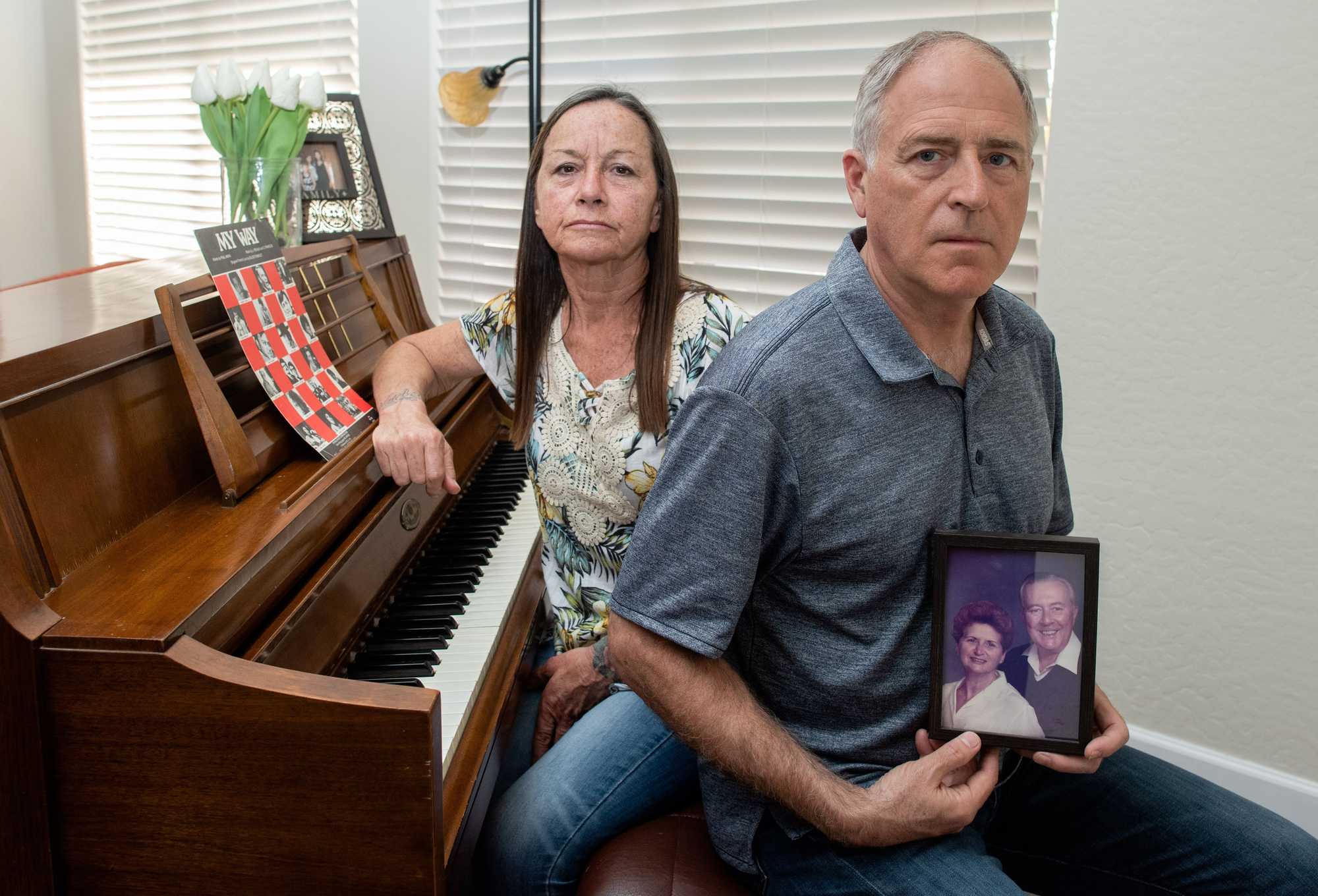
Wain later told the Globe that he had never seen a surgeon accidentally cut the left superior pulmonary vein while removing the lower lobe of the lung because they are about an inch apart — a long way in the geography of surgery.
“It’s not just the distance,” he said. “They are in disparate places.”
Garland stayed at MGH for about four months but never fully recovered. From his hospital bed, he exhorted his family to sue Baribeau, his daughter recalled.
“Get every damn penny out of that bastard and take care of yourselves,” Garland said.
Garland died in February 1996, about a year and a half after his surgery with Baribeau. The Garlands sued Baribeau and his private group practice, which was based at CMC and later bought by it. This is believed to be the first medical malpractice lawsuit filed against him while at CMC.
During his 1998 deposition, Baribeau initially said he didn’t recall cutting the vein or repairing it. He said he’d never even heard of damage to the left superior pulmonary vein as a complication for a lower left lobectomy because the vein is “somewhat distant” from the surgical site.
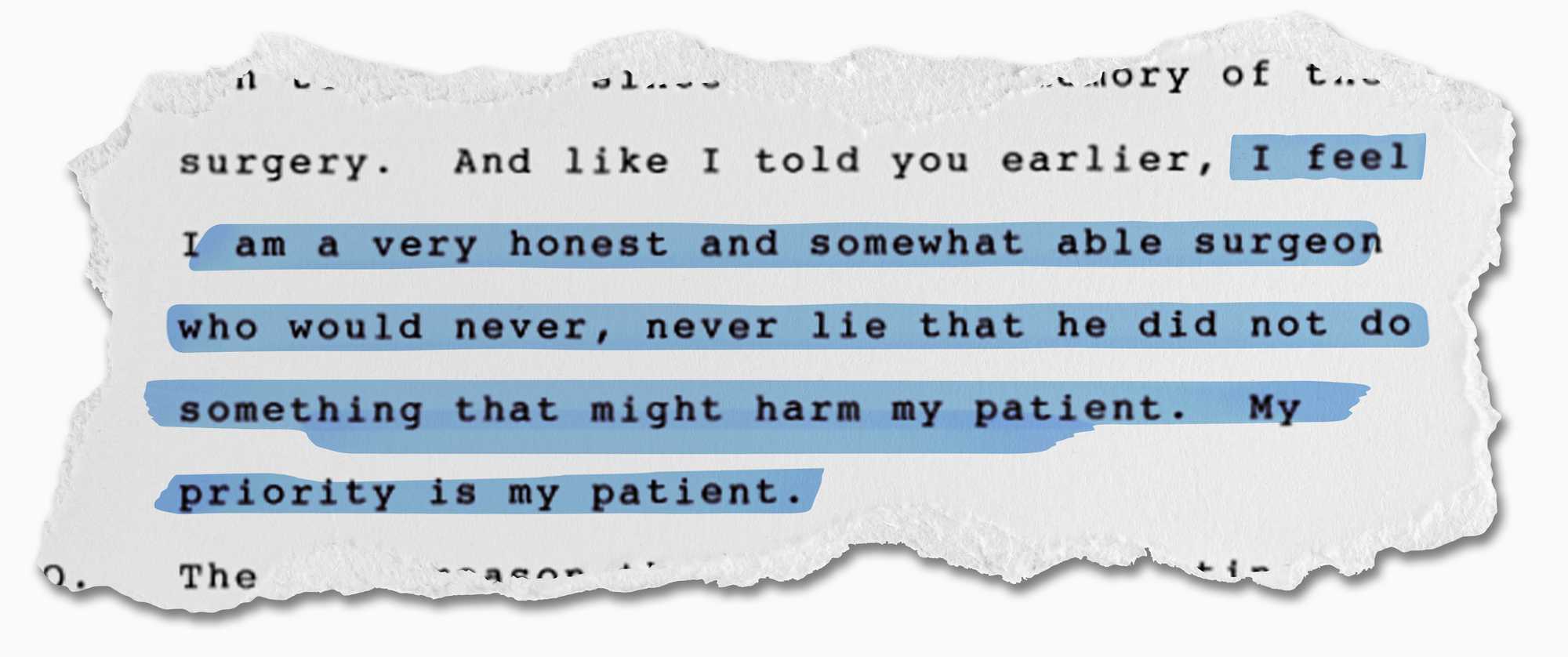
“I feel I am a very honest and somewhat able surgeon who would never, never lie that he did not do something that might harm my patient,” he said.
But while being grilled for more than four hours by the Garlands’ lawyer, he acknowledged that only he could have left the sutures in the vein. When asked whether a failure to mention a tear and repair of the blood vessel in his report would fall below his profession’s standard of care, Baribeau replied, “I think it would be below, more than below, standard of care.”
Later that year, Baribeau and the Garlands settled the suit for about $1 million, according to an internal hospital document obtained by the Globe.
“I just never understood why he was able to continue being a surgeon,” said Garland’s daughter.
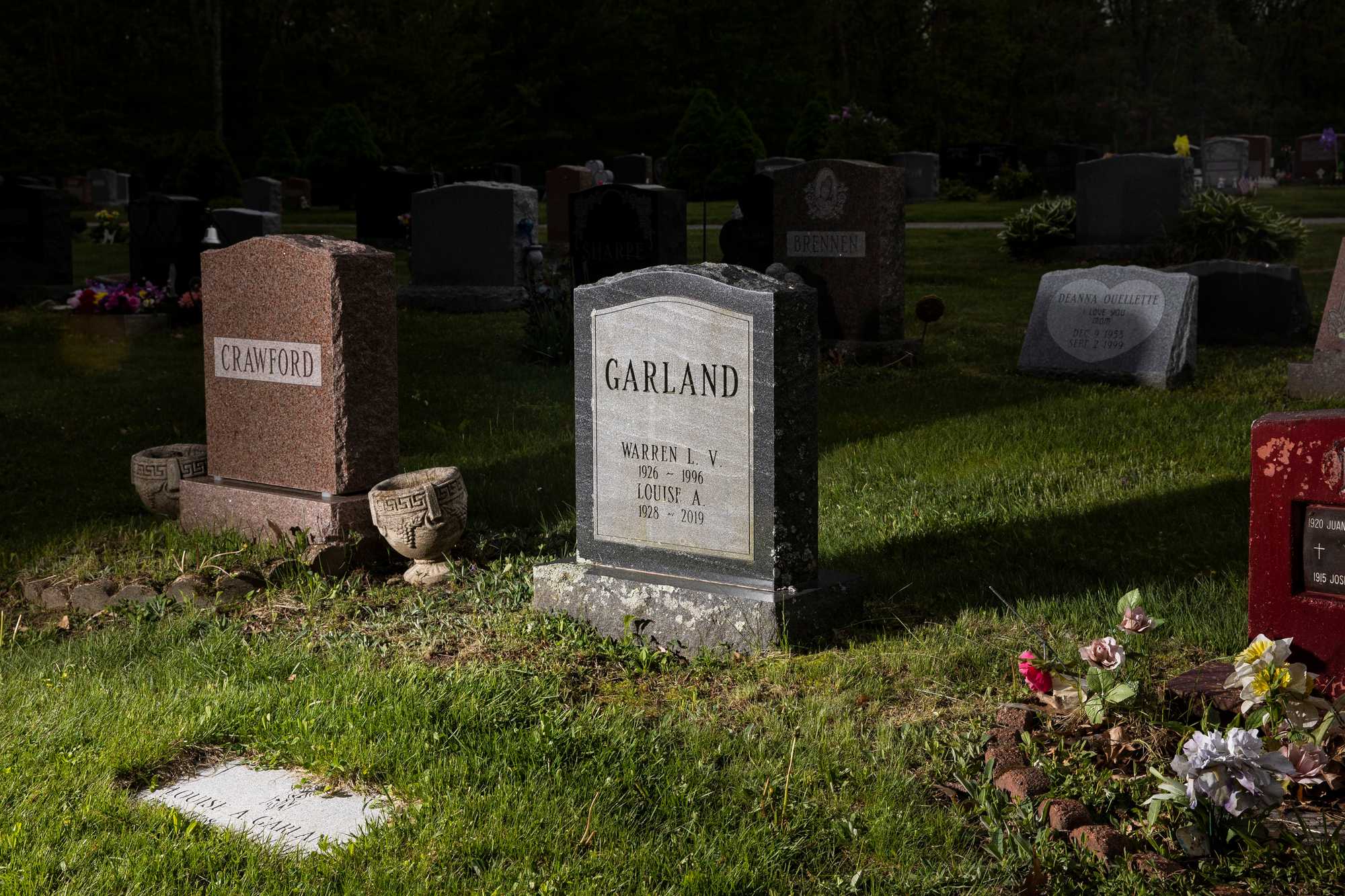
Restless ambitions of a man and an institution
When Baribeau arrived at Catholic Medical Center in 1992, the recently married 36-year-old surgeon was searching for a busy, growing practice to absorb his restless ambition. At CMC, he found what he was looking for and settled in. He and his wife would go on to have three children, raising them in a 6,000-square-foot brick mansion on a lush lot spanning 33 acres in a suburb of Manchester.
He was joining a hospital that had staked its future on building a robust heart surgery department, one that would help make CMC an unusually prosperous community hospital for years. Cardiac surgeries generate among the highest Medicare and other insurance reimbursements — up to $60,000 for some common heart surgeries — and can produce a ripple effect of related revenues from diagnostic tests and cardiology follow-up visits.
It’s the kind of money that flows down to the surgeons as well as the CEO, who has earned at least $1 million annually for much of the past decade.
If the hospital could do hundreds of heart operations a year, with just a few surgeons, the program stood to be a profit engine. But finding — and keeping — heart surgeons to work long hours in a community hospital in Manchester wasn’t always easy, and its specialists worked in the shadow of Boston and its elite Harvard teaching hospitals.
For Baribeau, Catholic Medical Center seemed just right. It had the enterprising approach he was looking for.
Growing up in Montreal, Baribeau seemed destined for medicine from a young age. Baribeau’s father, a traveling shoe-product salesman, was a strict man who was eager for his two sons to succeed, recalled one cousin who still lives in Canada. His mother was diagnosed with cancer when he was young and Baribeau would pepper an uncle, who was a surgeon, with questions about her prognosis and treatment, another cousin, Martin Charbonneau, recalled. She died when he was a teenager.
Baribeau, who was raised Catholic in a French-speaking home, had already taken classes focused in the health sciences by the time he was 16, according to licensing records. When Baribeau applied for medical school, he was initially rejected. He took a year to study biochemistry instead, and the following year, in 1975, began the University of Montreal’s medical program, where instruction was in French, according to a deposition and licensing records.
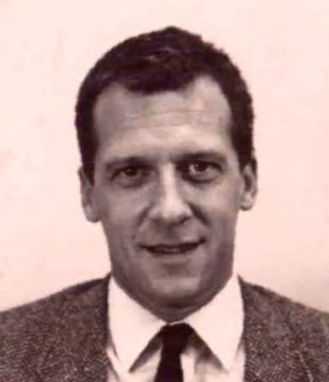
Professors remember him as a hard worker. He may not have been the best surgeon in his class, but he was technically skilled, and hungry to learn; he was often the first to test out new surgical devices. When he was in the room the staff knew it, said Dr. Régent Beaudet, the former head of cardiovascular and thoracic surgery at Notre-Dame Hospital in Montreal, where Baribeau did a residency.
“He was physically impressive,” Beaudet said. “He must have been 6 foot, physically he took his place.”
Even early on, Beaudet recalled, Baribeau’s hands worked with remarkable agility and efficiency, rarely repeating steps that can drag surgery times.
“He moved rapidly, softly, and swiftly,” Beaudet said. “He had a natural pair of hands. Some people are gifted and some are not.”
Baribeau was drawn to the chance to work in the American health care system, free from the financial and regulatory limitations of Canada’s government-run system.
“I had no interest in staying in Canada,” Baribeau said in a deposition in 2007. “I had a single day allowed for operation where I worked, and I was 34 years old and I had no intention of operating one day a week.”
Initially, he took a job with a cardiac surgery group based in Des Moines. But the pace of surgeries there was also too sluggish for his taste.
“He decided he wanted a bigger city,” said Dr. John Wiggans, who worked with Baribeau in the group’s practice in Waterloo, a small city in northeast Iowa. “I thought well of him. He was a little fast. But maybe he thought I was slow.”
Baribeau cast the net wide in his search for a more dynamic career. At one point in the early 1990s, he was licensed to practice medicine in Canada as well as eight US states, including Hawaii, California, Florida, and New Hampshire.
He finally settled on a relatively new cardiothoracic surgery practice in New Hampshire. It was a small group — just three other doctors — but its aspirations were big. Just like Baribeau’s.
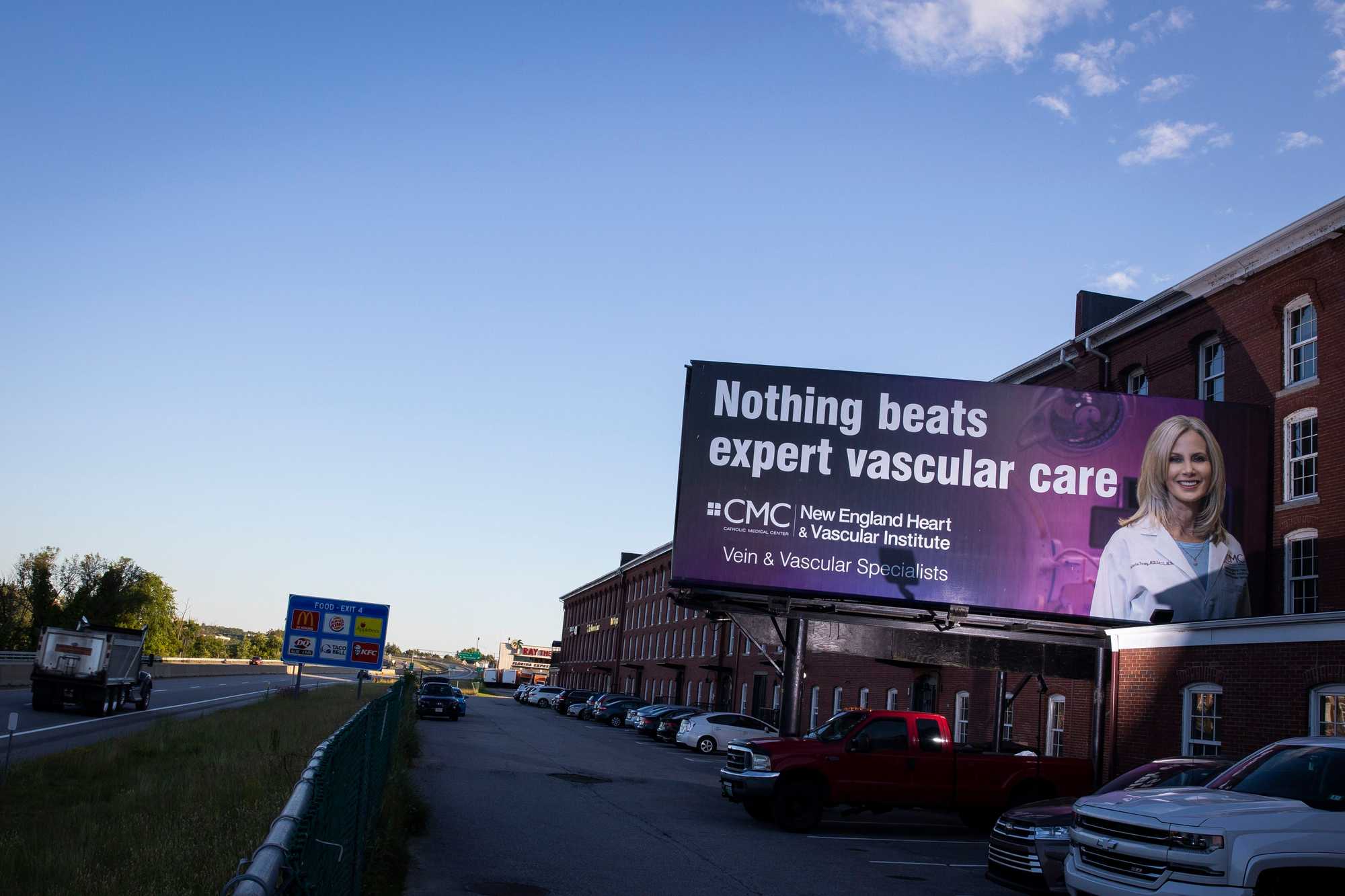
Outside the hospital today, the prominent sign for the hospital’s heart center near the main entrance can’t be missed. In 2017, the most recent year in which data is available, its surgeons performed nearly 700 open-heart surgeries, according to hospital documents, and in some years, the number was far higher. That made it the busiest cardiac program in the state, though small by the standards of Boston, where Massachusetts General Hospital, for example, does two to three times that number a year.
When Baribeau arrived, he made an instant impression. Athletic and charming, he had the chiseled good looks of a soap-opera doctor. He carried himself with confidence in and out of the operating room.
He could be warm with patients, holding their hands and offering support. But one family member of a patient recalled him being brusque when problems arose and slipping into French in the hospital hallways to vent his frustration.
Soon Baribeau was doing nearly 300 open-heart surgeries a year, plus other vascular and thoracic cases — a grueling workload, colleagues said. He would work long hours, pushing cases late into the night and often taking on high-risk patients that other surgeons deemed too sick to tolerate major surgery.
And Baribeau kept that pace for years, even as he would face his own serious health problems. In recent years, Baribeau kept booking more cases despite enduring back pain, hand ailments, and cancer, all of which would require surgical treatment, according to records, including Baribeau’s subsequent disability insurance lawsuit.
His colleagues began to notice a rushed energy about him, as he went from one complex operation to another, and it became a source of concern. Sometimes doing things right requires slowing things down.
Connie Lorette
Associate clinical professor at Northeastern University, former CMC certified registered nurse anesthetist
“You could tell there was such a sense of urgency with him,” said Connie Lorette, a former registered nurse anesthetist at CMC who began to have qualms about Baribeau decades ago. “He would track how fast he could do cases,” she said. “He just wanted to move to the next thing.”
Unfortunately, from early on, there were errors that accompanied haste, colleagues said. “There’s a lot of things that can go wrong when you’re sticking [patients with] needles,” Lorette explained. “The rate with him due to his carelessness was just astonishing.”
Yet Catholic Medical Center repeatedly championed Baribeau even when things went tragically wrong. Despite the large settlement with the Garland family in late 1998, the hospital proudly made Baribeau a poster boy for its growing New England Heart & Vascular Institute in a marketing campaign that began in February 1999.
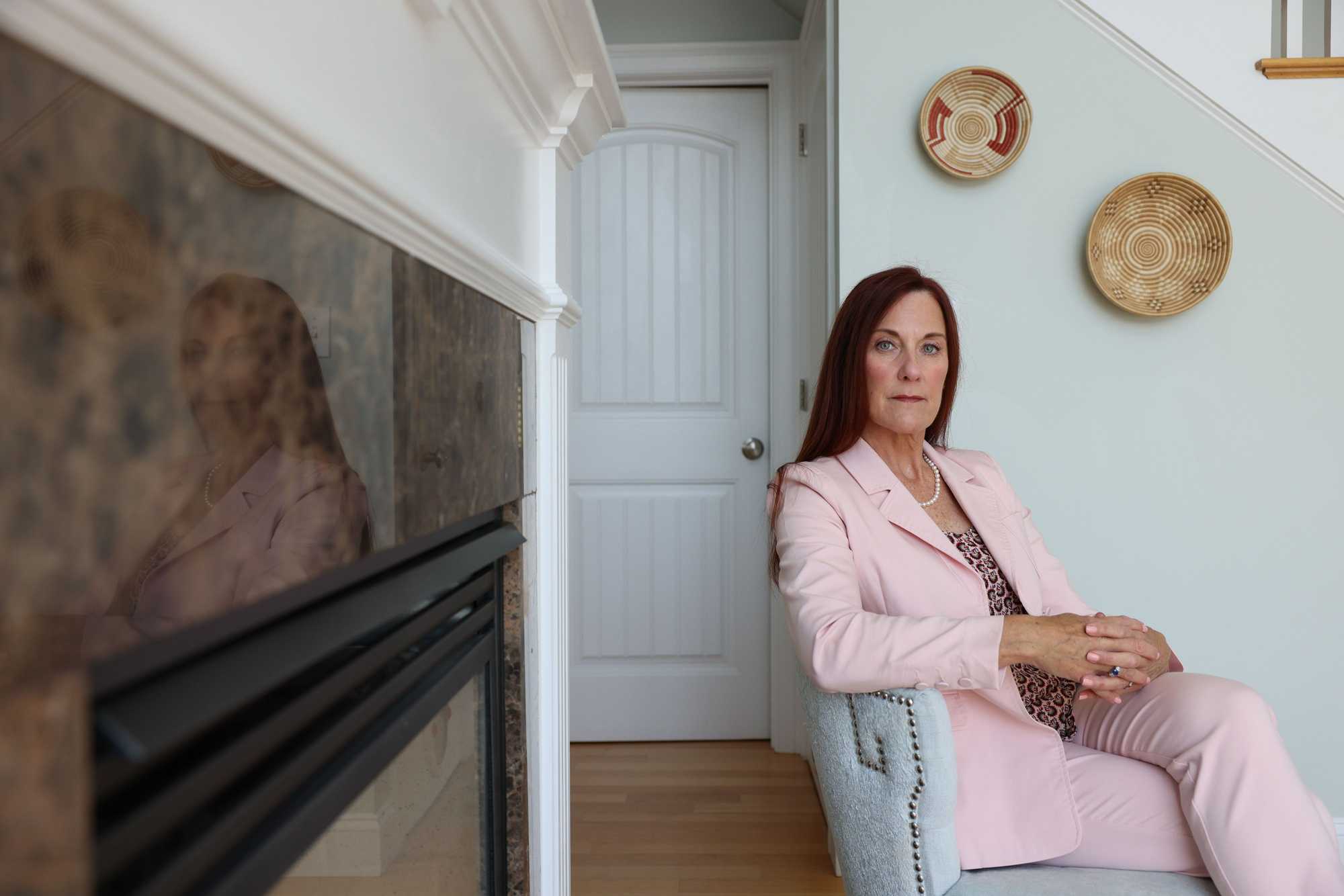
The hospital took out a series of advertisements in The Boston Globe featuring Baribeau and three colleagues, alongside a statement that the group had performed more than 10,000 open-heart surgeries, the most in New Hampshire.
But as Baribeau took on more cases, there were more troubling outcomes. In 2005, the hospital’s own mortality statistics showed about 10 percent of Baribeau’s surgical patients that year died, according to data obtained by the Globe.
Such data doesn’t factor in how sick patients were; still, Baribeau’s raw death rate was clearly higher than that of his colleagues.
Dr. Joseph Pepe, then the chief medical officer, called an emergency meeting of CMC’s board of trustees around that time to discuss Baribeau’s patient deaths, recalled Dr. Kathleen Zaffino, who ran the hospital’s emergency department and sat on the board.
“He made a very, very forceful case that Baribeau was dangerous,” recalled Zaffino “[He] said Baribeau is killing people. His numbers look a lot worse than other surgeons.”
In an interview in May with the Globe, Pepe, who went on to become CEO before retiring, denied sending such an alarmist message but said he had shared concerns raised by others, which resulted in an independent review.
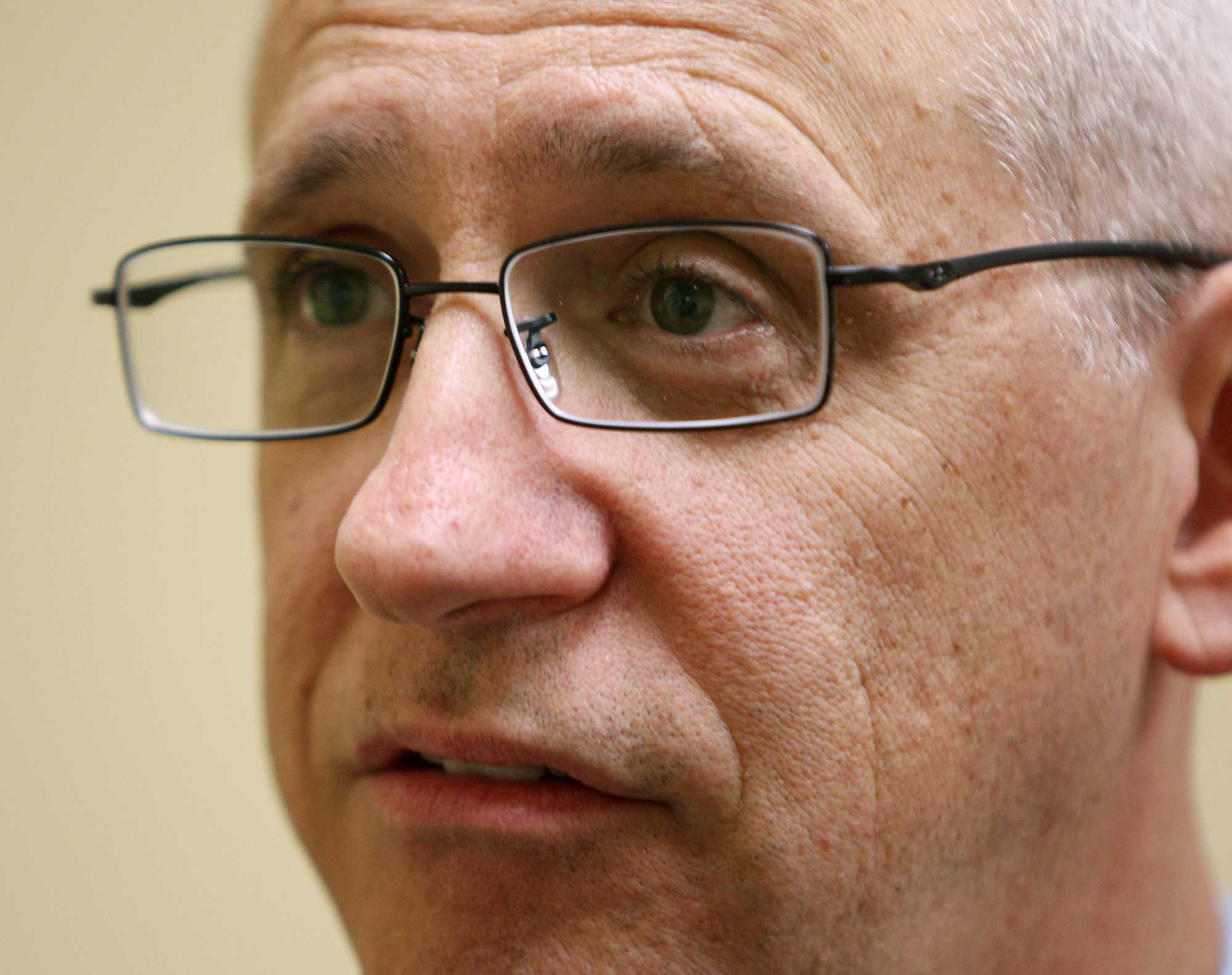
The hospital hired a renowned and recently retired Utah heart surgeon, Dr. Donald Doty, to observe Baribeau in the operating room. He also interviewed anesthesiologists and surgical colleagues.
Doty’s “report came back saying [Baribeau] was an excellent surgeon,” but that he had a problem with patient selection, according to Dr. David Fontaine, a radiologist who served on a committee overseeing physician standards.
In other words, Baribeau was operating on people whom many other doctors wouldn’t have touched because the patients might not survive surgery.
The hospital administration has suggested Baribeau’s willingness to take on the most desperate cases was a noble effort to help high-risk patients. But many colleagues who worked with him saw a surgeon eager to meet his high-volume goals even if that meant raising false hopes for patients and risking their lives.
Alyson Pitman Giles, CEO of the hospital at the time, described Baribeau as a wonderful surgeon but said “he was taking care of people who probably should not have had open-heart surgery.” She said he ultimately listened to feedback and “changed his behavior.”
In the years to come, the hospital increased oversight of Baribeau’s choices of patients suitable for surgery. Things seemed to improve, but only for a time.
The missing surgeon
The medical staff paged him. They called him repeatedly. But Baribeau would not come back to the OR.
In July 2012, he had just completed an eight-hour redo of a coronary artery bypass on a 55-year-old patient, a retired city official from northern New Hampshire. Baribeau clocked out of the operating room at about 8:30 p.m. and told the staff to observe the woman for bleeding, a common complication after such surgery, according to interviews and documents obtained by the Globe.
But the patient became unstable, and her bleeding increased. As she lay in the operating room receiving transfusions, the situation was becoming dire.
“I was in the OR, trying to keep her alive,” recalled Dr. James Dana, a former CMC anesthesiologist. “I can put the blood in, and put the blood in, but the [signs are] getting worse. And I need a surgeon!”
On that summer night, there was no cardiac surgeon in the building.
It is generally expected that attending surgeons stay in the hospital until their patient is stable enough to leave the operating room, and to ensure, should they have to leave the hospital, that an on-call surgeon is available.
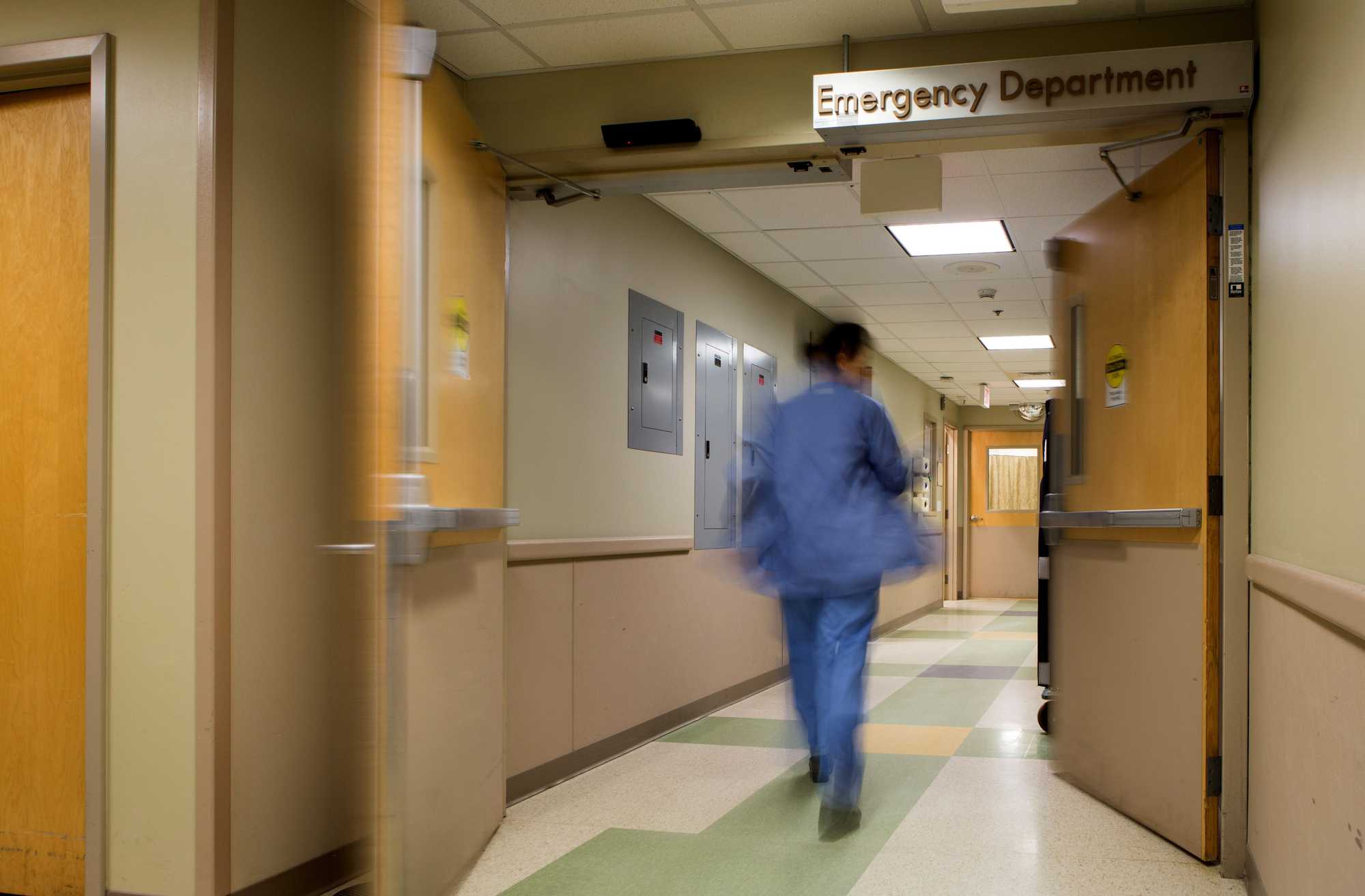
But when the staff finally reached Baribeau, he told them he was no longer covering cardiac cases for the night. He had apparently not made arrangements for a specific on-call surgeon.
The staff eventually found Dr. Benjamin Westbrook, who arrived after 10:10 p.m. But almost an hour and three quarters had elapsed. The woman died the next day from complications related to the procedure and subsequent bleeding.
For a physician to leave a patient in distress in the operating room unattended, or to refuse to return, is considered a profound breach of duty. Doctors have been fined, had their license suspended, and made headlines for such behavior.
At a monthly session at CMC devoted to discussing deaths and other poor outcomes among heart patients, Baribeau fabricated what had happened in the surgery, according to multiple staffers who were present.
Baribeau reported that, before his leaving the hospital, he and Westbrook looked for bleeding but couldn’t find any, said Terry Beauvais, a nurse first assistant who worked closely with Baribeau for years.
Terry Beauvais
Former certified registered nurse first assistant at CMC
“They were never in the room together at the same time … he just blatantly lied,” Beauvais told the Globe, adding that she stayed with the patient after Baribeau left and was there when Westbrook arrived.
Beauvais, who now works at a Boston-area hospital, said she wanted to report Baribeau to the hospital’s risk manager, but another manager advised her, “If you do that, you would probably find yourself without a job.”
Still, Baribeau couldn’t escape discipline.
A hospital committee that evaluates surgical care gave Baribeau the worst possible rating for his handling of the case, a 5 rating out of 5, which indicated “possible reckless behavior,” according to committee minutes obtained by the Globe. The committee noted the “lack of a proper hand-off” for this patient and the absence of a cardiothoracic surgeon “on-site for more than 90 minutes while the patient remained in the operating room.”
Catholic Medical Center gave Baribeau a letter of reprimand in late January 2013. The hospital’s board of trustees — made up of community members, Catholic Church representatives, physicians, and top hospital administrators — continued his appointment for one year provided he met certain conditions, according to a confidential legal document obtained by the Globe.
Among the conditions: Baribeau was ordered to ensure a surgeon was always available to his patients after surgery and to stay in the hospital and available while his patients remained in the operating room. He was also required to maintain complete and accurate documentation of patient care, the document shows.
Yet that same month, something similarly unthinkable allegedly happened again: Baribeau did not come to the hospital in a timely fashion for a desperately ill patient.
Newsletter: The Globe Investigates
Sign up to receive Spotlight reports and special projects in your inbox
Baribeau was the covering doctor on a mid-January shift in 2013 for the intensive care unit. The medical staff called Baribeau multiple times that evening to warn him about a patient, a 50-year-old construction contractor whose condition had progressively declined.
The patient was bleeding profusely, according to interviews and medical records described to the Globe. By early morning, as staff kept calling, signs were obvious for cardiac tamponade — internal bleeding that put pressure on the heart, a life-threatening emergency.
There were “multiple pleas for help,” recalled Krysten Brooks, a former CMC nurse, who spoke to a nurse who worked that night when she took the morning shift. “He was too tired and he didn’t want to come in.”
Finally Baribeau was called again, this time because the patient’s heart had suddenly stopped beating. At last, Baribeau came and operated on the patient.
Too late. The patient survived the surgery, but when staff checked his brain activity in the morning, he was unresponsive and brain dead.
For the second time in six months, Baribeau’s care got the worst possible 5 rating from the performance-review process, according to documents obtained by the Globe.
Baribeau did not answer a Globe question asking why he was unresponsive. Referring to this case in the confidential legal document, the hospital said Baribeau made “a clinical judgment that it was not necessary” to come in earlier.
Brooks said Baribeau had some strong qualities as a surgeon, but he had a reputation for being hard to reach at night, even dozing off while on the phone with nurses. The night-shift nurses would call him, she recalled, and “all of a sudden he would drift off to sleep, and they would take the phone and just start slamming it on the counter and saying, ‘Doctor, are you awake now?’”
Few knew him well personally, or much about his personal life or health conditions. Some colleagues believed his back problems had gotten worse, seeing him walking with a halting gait. Among staff, word had gotten out that he and his wife had split up, and records show they were divorced in 2011, not long before the two disturbing cases of delayed patient care.
This much was clear: He kept up a grueling operating schedule in these years. Baribeau’s weekly hours were often consistent with those of surgical residents — as much as 88 hours per week — according to the legal document obtained by the Globe.
“I live there,” Baribeau said of his work habits at the hospital in a later deposition.
In June 2013, after reviewing Baribeau’s treatment of the construction contractor, both his staff membership and his clinical privileges for 28 days, records show — a number just three days shy of what would be required to be reported to a national physicians’ database, making the information available for any state medical board to see.
His conditional appointment would later be extended for a second year.
For all that, there remained no publicly available record of Baribeau’s discipline. His physician profile on the New Hampshire Board of Medicine’s website would continue to look pristine — as if he had never done anything wrong.
Such a suspension of operating privileges — of any length — routinely appears for the public to see in many states, but New Hampshire’s medical licensing agency is one of the least transparent. State officials said they don’t see it as their role to inform the public about all aspects of a doctor’s troubled history and also want to protect physicians’ privacy. One national study also deemed it the weakest among the 50 states in disciplining troubled doctors.
New Hampshire ranks as the weakest state for disciplining doctors
State medical board’s rank for rate of serious disciplinary actions against doctors
According to Public Citizen, a consumer advocacy organization
Medical board's annual average rate of serious disciplinary actions
- 0.32
- Rate of serious actions per 1,000 physicians
- 2.33
- Average number of annual serious actions
- 622.9%
- Percent increase in disciplinary actions that would be needed to match state with highest rate
Inside Catholic Medical Center, the face-saving story to explain his month-long absence that circulated among colleagues was that Baribeau was on leave to undergo surgery for back pain, an issue that dogged him through the latter part of his career.
But on his licensing applications at the time, which the Globe obtained through public-records requests, Baribeau said he disagreed with the disciplinary action.
“I believe the temporary suspension resulted from concerns at CMC that I was overly fatigued and that such fatigue had impacted my care and treatment of a patient in January 2013,” Baribeau wrote in his N.H. license renewal applications.
Baribeau’s judgment was under increased scrutiny. Some colleagues wondered just how many second chances the surgeon would get.
The leg amputation
Frank Pellegrino, 75, a retired elevator company office manager, was rushed into the Catholic Medical Center emergency room by ambulance in the fall of 2014. Until this point, he had led an active life with summers at his home on the Cape with his wife, children, and grandchildren, quahogging and swimming in Lewis Bay.
Frank Pellegrino
Vascular surgery patient
But, while playing cards with friends, he had felt sudden searing pain in his right leg.
Records show that Pellegrino arrived at CMC at about 1:30 pm. Soon after, in the emergency room, a nurse noted that Pellegrino’s pain level was a 10 out of 10 and that “the leg is pale and cool, no pulses,” suggesting surgery was critically needed. An ultrasound done an hour later detected a major blood clot in the large artery behind his knee totally blocking the vessel, according to a deposition taken in a subsequent lawsuit.
A physician assistant in the emergency room, Brian Barb, immediately called for a vascular surgeon, who discovered that Pellegrino had been Baribeau’s patient before. Baribeau then took over the case, as Barb later recalled.
Barb assumed Baribeau would soon begin the surgery. But Baribeau decided first to do a nonemergency surgery, which had been previously scheduled, before turning to Pellegrino.
For such severe blood clots in the leg, there is no clear-cut medical consensus on how soon to operate, and even immediate surgery can end in amputation.
However, Baribeau’s decision to delay Pellegrino’s operation added profoundly to the risks, said Dr. Stratton Danes, the vascular surgeon who saw Pellegrino when he came to the emergency room.
“I thought he needed to go as soon as possible,” said Danes, who now works in southern New England. “I would have switched, done the emergent case and done the elective case afterward, just because things can go sideways in the operating room very easily. …The patient wasn’t given a fighting chance.”
Baribeau then ran into complications with the elective surgery, a coronary artery bypass, and had to stay with that patient.
Another vascular surgeon was eventually called in to operate on Pellegrino at about 8 p.m., some six hours after he arrived at the hospital. But the lack of circulation in his leg had gone on too long.
In the days and weeks that followed, Pellegrino would require multiple operations as surgeons amputated his right leg and shaved off more of the damaged tissue. By the time he left the hospital, Pellegrino had lost his leg above the knee.
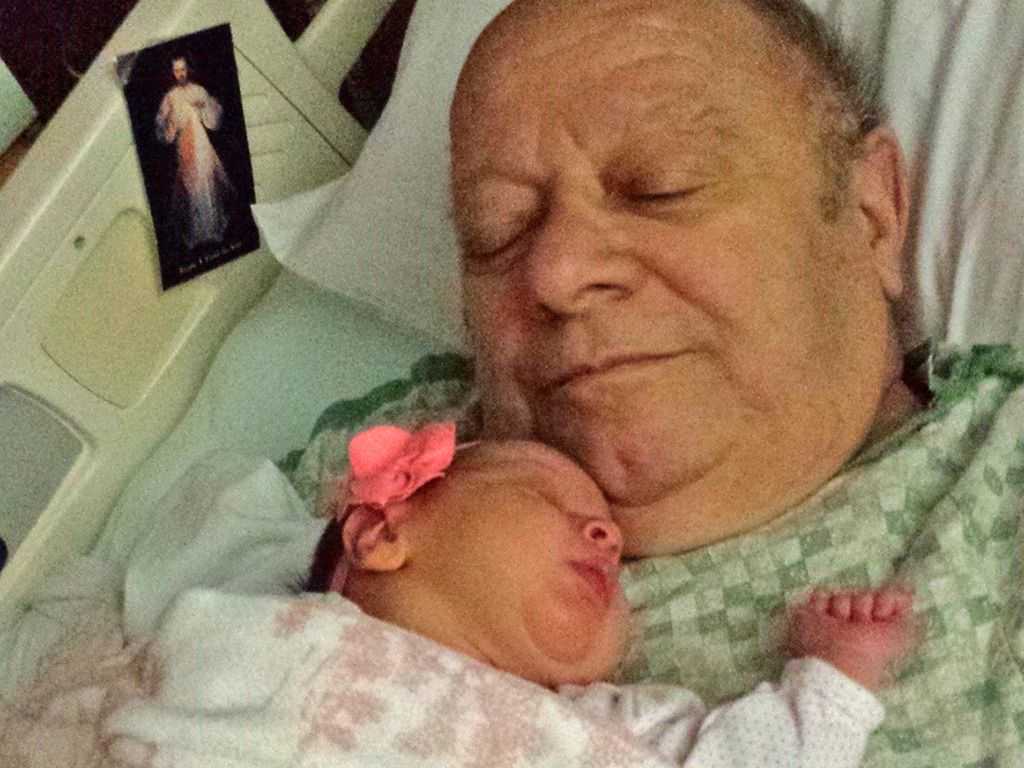
In his deposition taken after the family sued for malpractice, Baribeau was questioned about his decision to delay Pellegrino’s surgery. He said he didn’t see the case as an emergency.
“I think I’m a good clinical guy, I think. I’m not perfect. But what I see at that time tells me this is an urgent case, this is not an emergent case,” he said.
After the surgery, top hospital administrators tried to place significant blame on the physician assistant in the emergency room, Barb, for allegedly failing to alert Baribeau about the urgency of Pellegrino’s condition, according to medical staff who were part of the contentious reviews of the Pellegrino case.
Many who knew of Barb’s conscientiousness and his actions in this case were outraged that a lower-level employee would be blamed.
Dr. Kathleen Zaffino
Former emergency department director at CMC
“It was not his fault, and they tried to force me to give him a bad score, and I wouldn’t do it,” said Zaffino, the CMC emergency department director at the time.
Barb said he was deeply relieved that some top physician leaders defended him. “It was obvious at the time that they were trying to deflect blame,” said Barb, who now works for a veterans’ medical center in Boston.
Physicians were squaring off against the administration, and the lines were drawn.
Pellegrino died in 2017, more than a month after he gave a deposition in the family’s lawsuit against Baribeau and the hospital. Baribeau and his practice together settled for about $500,000, according to an internal document obtained by the Globe.
Pellegrino’s daughters, Lori Pellegrino and Linda Bowden, said the settlement bars them from speaking publicly about key aspects of the case. But when reached by the Globe, they said they felt compelled to say something about the larger forces at work that caused families, including theirs, to suffer due to the lack of oversight of this surgeon.
“The system is severely broken,” they said in a statement. “People’s lives have been absolutely devastated by the lack of intervention in allowing these atrocities to occur and continue unchecked.”
Following heated discussions among doctors and administrators about the Pellegrino case, Catholic Medical Center’s board chairman Rick Botnick sent to Baribeau.
Botnick reminded Baribeau that this was his third serious incident in a little over two years and reflected an “error in judgment in the clinical management of this patient,” according to the 2015 letter obtained by the Globe.
Botnick informed Baribeau in that letter that “any similar incidents in the future may lead to disciplinary action, up to and including separation from employment and/or loss of medical staff privileges.”
The hospital leaders could only hope such a warning would make a difference. The answer would come soon enough.
Next: A crisis of conscience, with lives on the line
Send comments and tips to [email protected], or at 617-929-7483. Or write to the reporters on this story at [email protected], [email protected], [email protected], and [email protected].
Credits
- Reporters: Rebecca Ostriker, Liz Kowalczyk, Jonathan Saltzman, and Deirdre Fernandes
- Spotlight Editor: Patricia Wen
- Other editors: Scott Allen and Mark Morrow
- Multimedia editor: Christina Prignano
- Design: Ryan Huddle
- Development: Daigo Fujiwara
- Photographers: Erin Clark and Jessica Rinaldi
- Photo editors: William Greene and Leanne Burden Seidel
- Animation: Dominic Smith
- Video editor: Anush Elbakyan
- Copy editors: Michael Bailey and Mary Creane
- Audience engagement: Maddie Mortell and Devin Smith
- Newsletters: LaDonna LaGuerre
- Quality assurance: Nalini Dokula
- Data analysis: Yuriko Schumacher
- Researcher: Jeremiah Manion
© 2022 Boston Globe Media Partners, LLC


